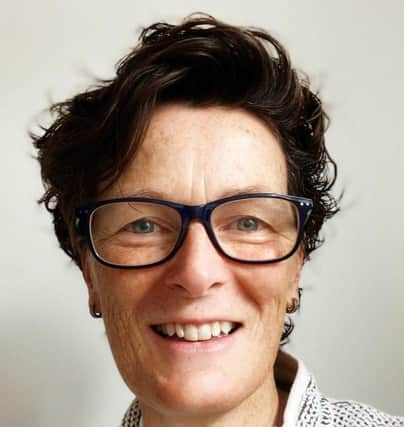Eastbourne innovator helping those with hearing loss and dementia live better for longer


Amanda Philpott, from Alfriston, is co-creator of eargym, an app that offers immersive games designed to challenge and strengthen a person’s hearing. It also stimulates cognitive skills linked to memory and strategy.
The former NHS CEO explained: “We started eargym after discovering that age related hearing loss is the biggest factor in 9% of all dementia. I have experience of unaddressed hearing loss among my family, so know the difficulties it can cause.
Advertisement
Hide AdAdvertisement
Hide Ad“We want to support people in living well for longer, and hope eargym will not only manage the symptoms of dementia but contribute to a reduction in the overall incidence of dementia. There are 26,500 people with dementia in Sussex, and soon to be a million across the UK. It is a disease that causes a lot of difficulties.”
Eargym was one of a handful of start-ups that received £100,000 from Alzheimer’s Society as part of their Accelerator programme, to help develop their product.
The charity are looking to support entrepreneurs creating products that make everyday tasks easier for people with dementia, and guide them through the innovation process with the help of their own experts.
Amanda added: “The chance to partner with Alzheimer’s Society to achieve our goals was a huge opportunity for us, enabling eargym to benefit from the charity’s knowledge and also ensuring our design process included people with lived experience of dementia at the centre.”
Advertisement
Hide AdAdvertisement
Hide AdHearing loss has a £25 billion impact to the UK economy each year caused by lost productivity and early retirement. On average, employees with hearing loss retire up to nine years earlier than their counterparts with normal hearing. Dementia does not just affect elderly people and is not an inevitable part of ageing. More than 40,000 people with dementia in the UK are under 65.
Researchers believe, in theory, 40% of all cases of dementia may be preventable – but there are lots of risk factors involved. People with hearing loss are more likely to develop dementia, but researchers are yet to discover why this is.
Peter Middleton, a former police officer, was diagnosed with young onset dementia in 2018.
The 68 year-old said: “My dementia shows itself through anxiety and short-term memory issues. When I heard about eargym I was intrigued because my anxiety means I struggle concentrating in rooms with lots of chatter.
Advertisement
Hide AdAdvertisement
Hide Ad"Honing in on a particular conversation when there is background noise is something that everyone struggles with to a degree, but it is exacerbated for those with dementia.
“However, the app shows it is possible to train someone via repetition to concentrate better on conversations and make the process a little less scary for someone with dementia. They put us in noisy environments such as a football match, café or train station and we play the role of barista or ticket attendant.
“We must prepare orders or remember all the station stops and as it continues, the background noise becomes more intense and customers less clear. They often add an extra item halfway through an order which makes it trickier.
“You track your score to see how your memory retention and ability at blocking out distractions improves. It has helped having conversations when socialising with friends.
Advertisement
Hide AdAdvertisement
Hide Ad"Of course, it may not be as useful for people further along their journey with dementia. But it is immensely useful for those like me, or with early onset-dementia who want to keep mentally active and stimulated to maintain a better quality of life for longer.
“Once someone has dementia, inevitably people focus on what is lost but instead, they should focus on what is there and try to build upon it. People affected by dementia can still learn new skills and enhance old ones, even after a diagnosis and that is what eargym does.”
Do you have an idea that could change the lives? Alzheimer’s Society’s Accelerator Programme is now open.
Visit the Innovation hub to learn more innovationhub.alzheimers.org.uk